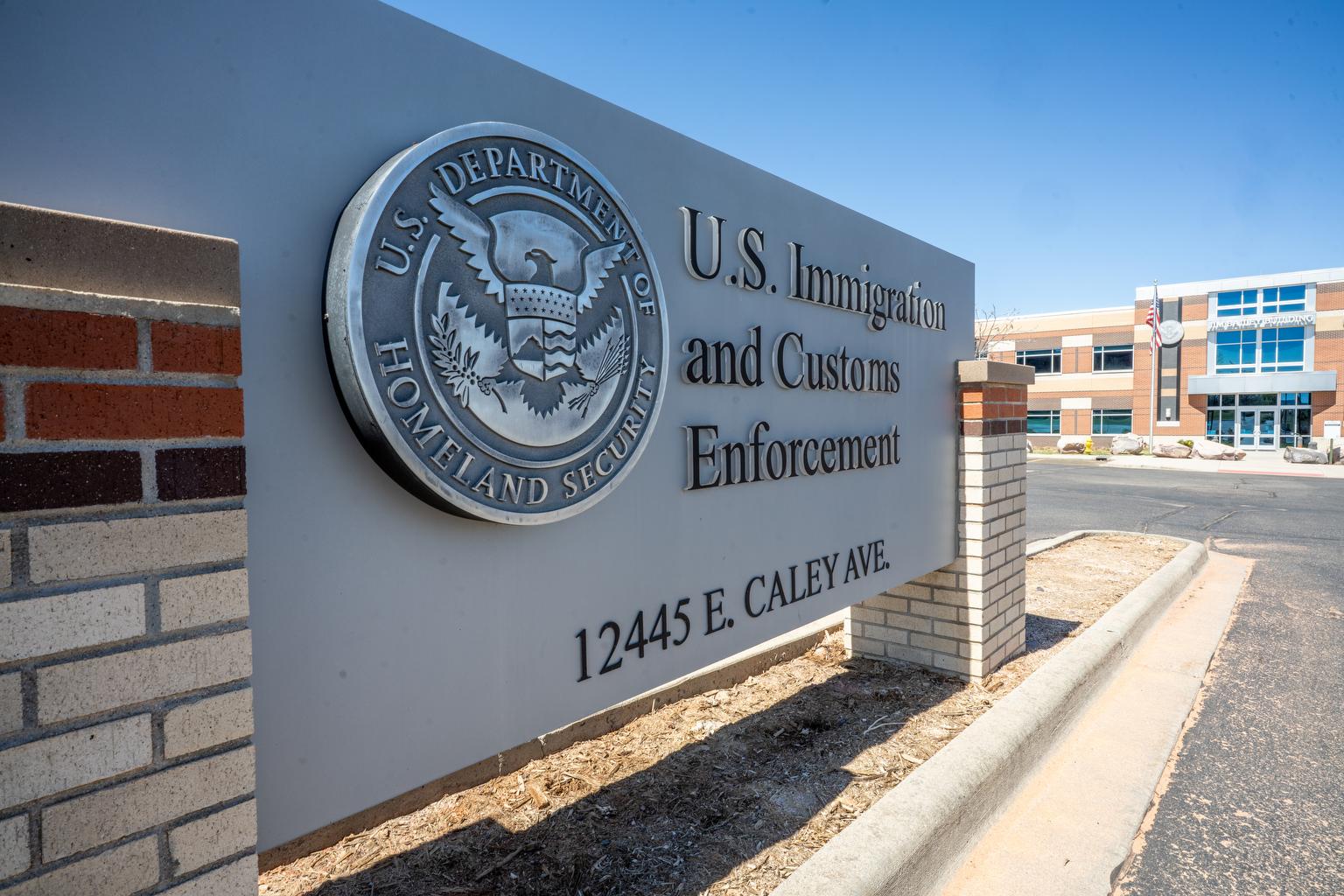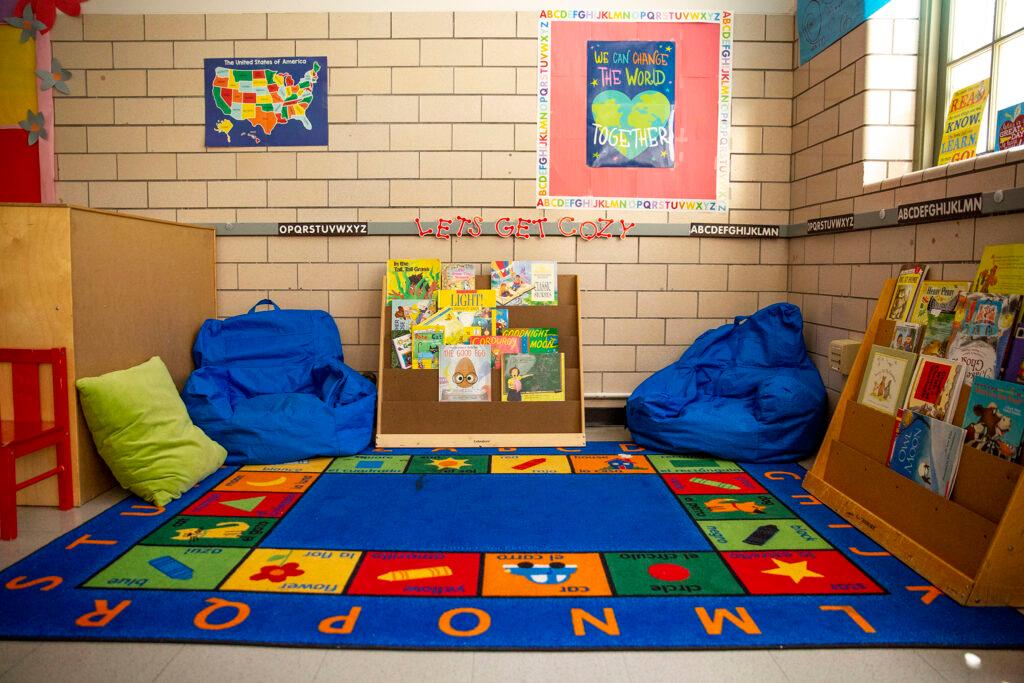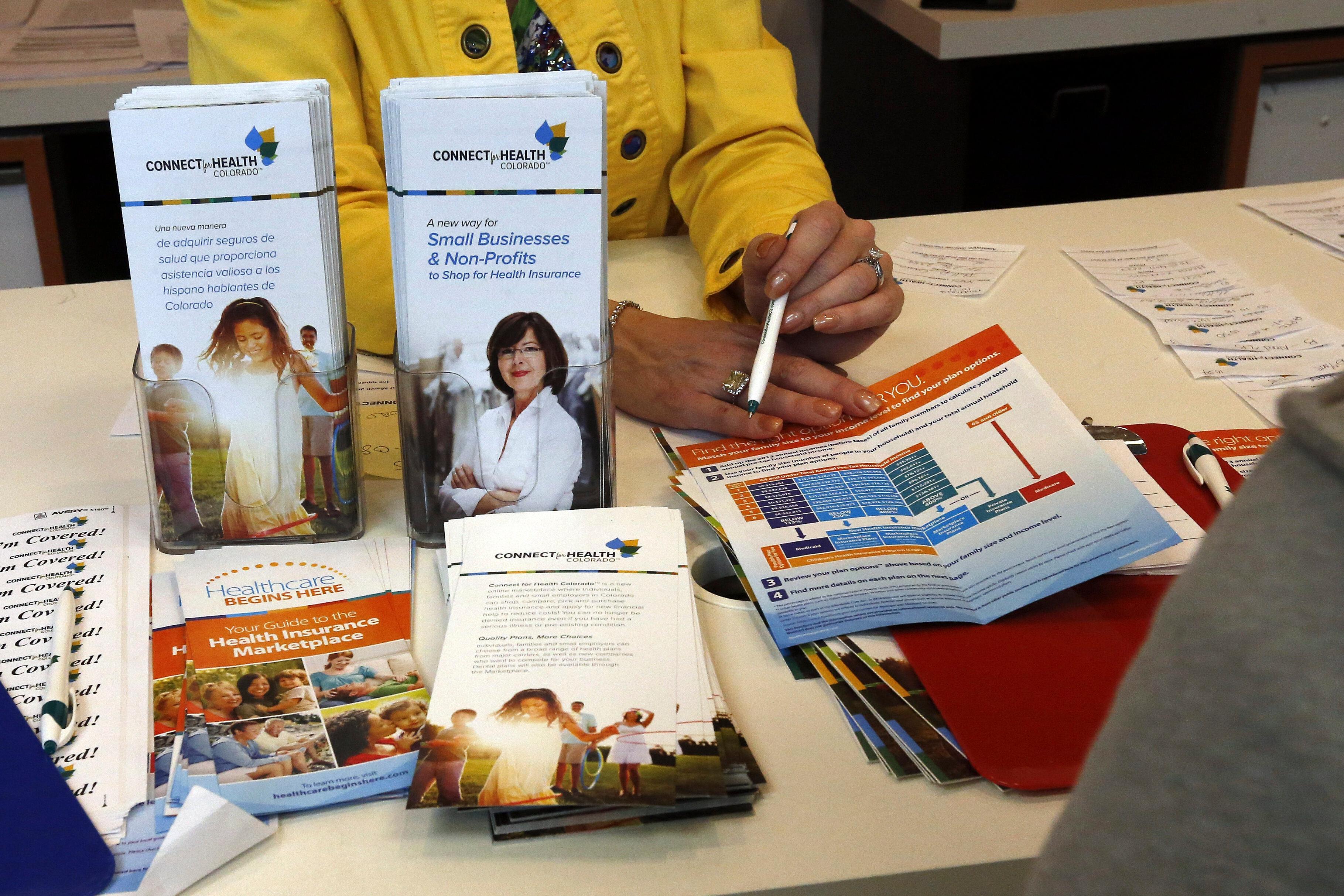
Federal agents are typically busy with complex white collar crime investigations, terrorism, racketeering and drug trafficking or other serious crimes.
But in April, officers spent three days at the Lutheran Family Services offices in Colorado Springs and Denver trying to track down eight immigrants who crossed the Mexican border as minors. They were now in El Paso County’s foster care system, contracted through the faith-based organization.
The children already had several guardrails in place ensuring their safety, but the Trump administration and the Department of Justice had pulled federal law enforcement officers away from their other duties in order to essentially conduct a census of those unaccompanied minors. The resulting database is now in the hands of immigration authorities.
The extraordinary effort to track thousands of young people nationally and in Colorado is the latest indicator of how unauthorized immigration, typically a civil offense, has become one of the federal government’s highest law enforcement priorities, even if the cases rarely result in criminal charges.
Immigration and Customs Enforcement officials, who declined interview requests but responded to written questions, said the sweep, which CPR News has confirmed is largely complete, was primarily an effort to guarantee the safety of the minors.
But immigration advocates and attorneys in the complex system said the effort was actually intimidating to the children and caregivers. They fear it will result in accelerated deportations of kids sent to the U.S. by families hoping they would find a better life. A directive sent to law enforcement partners by ICE explaining what they were to look for lends credence to those concerns.
Children labeled as 'targets'
In Colorado, immigration lawyers first began hearing from clients that armed officers were doing unannounced home visits in the southern part of the state, including Alamosa and nearby cities. The visits continued in the Denver metro area throughout April and early May.
Advocates and attorneys, who for weeks scrambled to assure their clients and federal agents that the kids were represented and didn’t need checking on, say that if the federal government truly cared about kids’ welfare, sending armed officers to homes wasn’t exactly going to provide comfort.
“I work with a lot of traumatized children and this isn’t the way I would get them to trust you,” said Ashley Harrington, who manages the children’s program at the Rocky Mountain Immigrant Advocacy Network.
The welfare checks were led by the Department of Homeland Security, but they weren’t acting alone.
Much of the work was also carried out by federal law enforcement officers from the Federal Bureau of Investigation, the Drug Enforcement Administration and others who typically focus on major crimes, not civil immigration offenses.
The U.S. Department of Health and Human Services administers the unaccompanied minors federal program, but they referred questions about the sweep to Homeland Security. There, a spokesperson said it was a national effort to be certain the children were safe.
An ICE spokesperson in Colorado echoed that, saying in an email that, “ICE is fully engaged and committed to child safety and accountability for every action and person involved in the care of unaccompanied alien children.”
The ICE directions to federal partners, titled “Unaccompanied Alien Children Joint Initiative Field Implementation,” were obtained by CPR News.
The document indicates that ICE actually had multiple motives for the effort, including creating a database of current locations for unaccompanied minors, determining whether they are complying with their responsibilities to immigration courts and learning whether they have committed criminal offenses before arrival or while in the U.S. — all possible preludes to removal from the country.
The initiative, which referred to unaccompanied minors as “targets,” outlined four phases. It was to begin with ICE collecting unaccompanied minor data from “various sources” and entering that into a computer program to develop priority groups defined as: flight risks, public safety risks and those with “executable orders of removal.”
Finding potential victims of sex trafficking is not among the categories listed, though ICE does provide guidance in the memo about how to handle a trafficking case, including coordinating with the office of public affairs on publicizing “successful human trafficking investigations.”
According to the memo, “phase two” of the plan included enforcement and removal officers leading and pursuing orders for removal “for cases that are included in this UAC initiative,” according to the internal memo.
The next phases include procedural requirements and coordination between many federal agencies on pursuing the unaccompanied minors, including asking agents to verify whether any of the unaccompanied children are registered in school.
A Denver Public Schools spokeswoman said on Thursday that the district hadn’t received any calls to verify attendance by any federal agency in the last few months.
Using the federal acronyms for Homeland Security Investigations (HSI) and ICE’s Enforcement and Removal Operations division (ERO), the memo reminds agents working in phase four that they are to take action against the unaccompanied minors when warranted.
“ERO officers should remember they are to enforce final orders of removal, where possible, and HSI will pursue criminal options for UAC (unaccompanied alien children) who have committed crimes,” the memo says.
ICE did not answer questions about whether anyone — child or adult — was placed in deportation proceedings as a result of the sweep.
Thousands in Colorado
The Trump administration called the unprecedented national effort warranted. They claimed it resulted in the reunification of more than 5,000 unaccompanied children with a relative or safe guardian, according to a statement from Homeland Security. The number could not be independently verified.
ICE’s Colorado office also did not answer questions about whether the state sweep uncovered any cases of sex trafficking.
Thousands of children crossed the Mexican border to the U.S. without an accompanying adult over the past 10 years, according to an inspector general’s report from the federal department of Health and Human Services. But the increase between 2020 and 2022 neared crisis levels, according to the report. The total number of incoming children overseen by the federal government in various forms of shelter and placement jumped from 1,929 in October 2020 to 20,339 children in April 2021.
Colorado received thousands of kids between 2015 and 2024, according to federal data, including 1,424 in 2022, another 1,616 in 2023 and 1,746 in 2024.
Once in the United States, those children were placed under the supervision of the Office of Refugee Resettlement, overseen by the federal Health and Human Services agency. In most cases, children were eventually placed with family members across the United States. Those families were subject to screening by HHS before the placements.
But one inspector general report found that 16 percent of children’s case files lacked any documentation that one or more required safety checks were conducted. That same report, released in February 2024, found that the federal government at times also failed to conduct mandatory home studies.
A small percentage of those children told authorities at the time of the crossing that they were victims of human trafficking — either in their home countries or en route to the United States.
Those youth are in a separate category due to their victim status and were placed in the Unaccompanied Refugee Minor Program, which means they live with foster families and are placed under the supervision of local authorities.
“Many of the unaccompanied children that came across the border are victims of smugglers and sex traffickers,” said Tricia McLaughlin, assistant secretary for public affairs at Homeland Security. “Unlike the previous administration, President Trump and (Homeland Security) Secretary (Kristi) Noem take the responsibility to protect children seriously and will continue to work with federal law enforcement to reunite children with their families.”
'Why are they coming for me?'
Within the refugee minor program, the kids have regular welfare checks, lawyers said, including contacts with a county case worker, a guardian ad litem attorney and an immigration attorney.
Which means, when the agents came knocking for information three times in April at the Lutheran Family Services offices in Colorado Springs and Denver, the staffers in the office told them firmly they weren’t going to help.
All three times, the agents asked for the location of various minors enrolled in the unaccompanied refugee minors program — some of the people they were asking about were over the age of 18.
“We were doing what is required,” said Dona Dalton, a Lutheran Family Services spokeswoman. "Lutheran Family Services Rocky Mountains always maintains client confidentiality according to the law and agency policies. Questions about youth in our foster care programs always have to be referred to the child’s legal custodian.”
Lawyers have confirmed the welfare checks — at least in the Denver metro area — have been completed at this point — at least for now. An FBI spokeswoman could not comment on the status of the operation now.
Arapahoe County, which in 2024 alone received 133 kids, the highest number of unaccompanied minors placed in Colorado, was made aware of the welfare checks right as they were starting there, a spokeswoman said.
She noted this week that they never received any referrals or complaints as a result of these checks.
Lawyers from the Rocky Mountain Immigrant Advocacy Network, which represents a number of the unaccompanied children in their immigration cases, say the visits from law enforcement were chilling for their clients.
One 20-year-old didn’t answer the door when agents came knocking in April. She was confused — and scared — because her removal proceedings had just been canceled when she received a special juvenile visa.
Why, she questioned her attorney Emily Brock, are people knocking on my door now?
“She couldn't think of any reason why immigration would be at her door. And so that's quite frightening for someone who just doesn't understand, well, why are they coming for me?” said Brock, an attorney at the Rocky Mountain Immigrant Advocacy Network.
Several attorneys said the agents didn’t seemingly understand the status of the people they were checking on — including door knocks on the homes of people who had been granted asylum or had become legal permanent residents.
“Maybe it speaks a little to the disorganization,” Brock said. “They're just sort of canvassing without knowing the status of a lot of the people they're checking up on.”
Democratic Sen. Michael Bennet called the operation troubling.
Bennet, who has introduced legislation that would create a special children’s court to improve immigration cases involving unaccompanied children, called the unaccompanied migrant children population “the most vulnerable.”
“They deserve respect, dignity and care. In Colorado and across the country, stories of ICE agents showing up at schools and homes unannounced are worrisome,” he said. “It’s past time to fix our immigration system and protect our most vulnerable children from harm.”
A Denver-based ICE spokesman, who demanded anonymity, confirmed the agency conducted “investigative activities.”
“ICE is fully engaged and committed to child safety and accountability for every action and person involved in the care of unaccompanied alien children,” the statement said.
While the FBI wouldn’t confirm whether they’ve completed the welfare checks or how many homes they canvassed, they said that “protecting children is a critical mission for the FBI and we will continue to work with our federal, state and local partners to secure their well-being.”
For advocates and lawyers representing the youth, much of the weeks-long operation was head-scratching.
Law enforcement, particularly federal law enforcement, is largely about priorities and the work officers choose to do instead of other pressing things affecting public safety in Colorado.
“What a waste of government resources,” Harrington said. “The government's narrative is that they are checking on kids who have gone missing and are at risk of trafficking. But we have seen them checking on kids who were released directly from the (Office of Refugee Resettlement) into state foster care. These kids have not gone missing and they have many professionals watching out for their wellness.”
Funding for public media is at stake. Stand up and support what you value today.








